Philipp Grüning
Automated Computation of Therapies Using Failure Mode and Effects Analysis in the Medical Domain
May 06, 2024Abstract:Failure mode and effects analysis (FMEA) is a systematic approach to identify and analyse potential failures and their effects in a system or process. The FMEA approach, however, requires domain experts to manually analyse the FMEA model to derive risk-reducing actions that should be applied. In this paper, we provide a formal framework to allow for automatic planning and acting in FMEA models. More specifically, we cast the FMEA model into a Markov decision process which can then be solved by existing solvers. We show that the FMEA approach can not only be used to support medical experts during the modelling process but also to automatically derive optimal therapies for the treatment of patients.
Bio-inspired Min-Nets Improve the Performance and Robustness of Deep Networks
Jan 06, 2022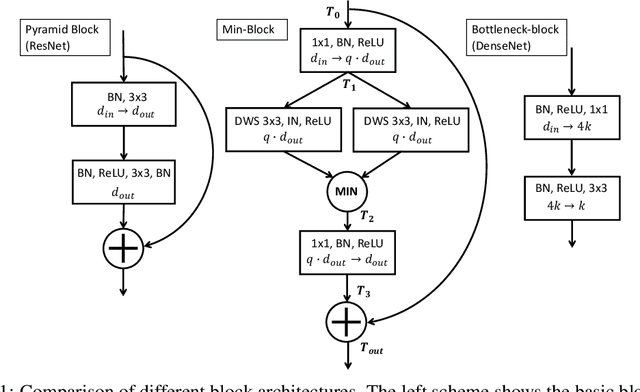

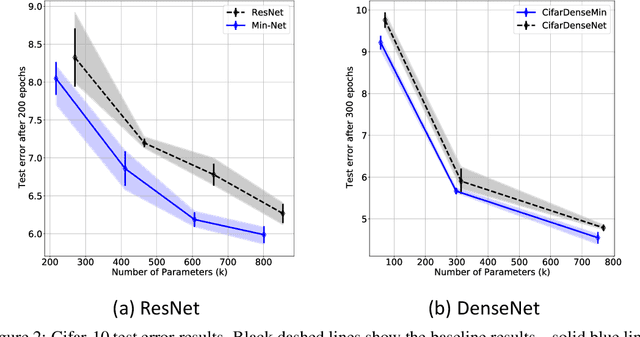

Abstract:Min-Nets are inspired by end-stopped cortical cells with units that output the minimum of two learned filters. We insert such Min-units into state-of-the-art deep networks, such as the popular ResNet and DenseNet, and show that the resulting Min-Nets perform better on the Cifar-10 benchmark. Moreover, we show that Min-Nets are more robust against JPEG compression artifacts. We argue that the minimum operation is the simplest way of implementing an AND operation on pairs of filters and that such AND operations introduce a bias that is appropriate given the statistics of natural images.
Feature Products Yield Efficient Networks
Aug 18, 2020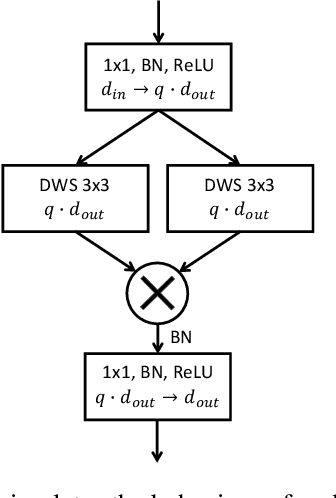

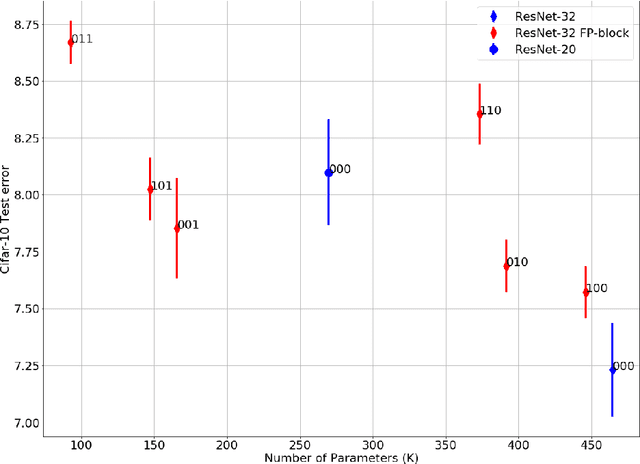
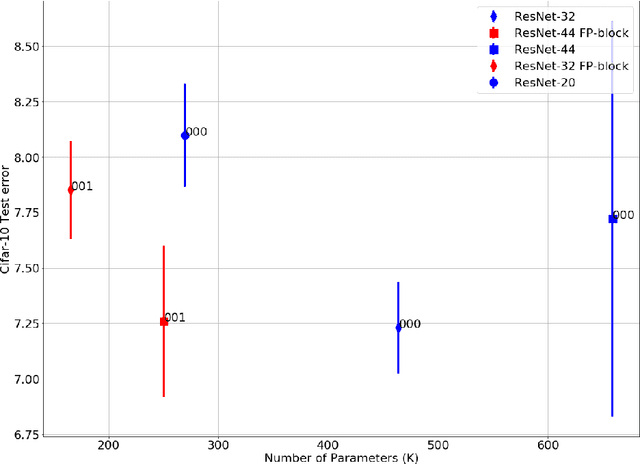
Abstract:We introduce Feature-Product networks (FP-nets) as a novel deep-network architecture based on a new building block inspired by principles of biological vision. For each input feature map, a so-called FP-block learns two different filters, the outputs of which are then multiplied. Such FP-blocks are inspired by models of end-stopped neurons, which are common in cortical areas V1 and especially in V2. Convolutional neural networks can be transformed into parameter-efficient FP-nets by substituting conventional blocks of regular convolutions with FP-blocks. In this way, we create several novel FP-nets based on state-of-the-art networks and evaluate them on the Cifar-10 and ImageNet challenges. We show that the use of FP-blocks reduces the number of parameters significantly without decreasing generalization capability. Since so far heuristics and search algorithms have been used to find more efficient networks, it seems remarkable that we can obtain even more efficient networks based on a novel bio-inspired design principle.
 Add to Chrome
Add to Chrome Add to Firefox
Add to Firefox Add to Edge
Add to Edge